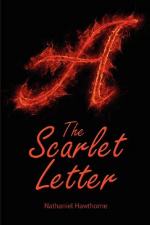“Ah,” replied Roger Chillingworth, with that quietness, which, whether imposed or natural, marked all his deportment, “it is thus that a young clergyman is apt to speak. Youthful men, not having taken a deep root, give up their hold of life so easily! And saintly men, who walk with God on earth, would fain be away, to walk with him on the golden pavements of the New Jerusalem.”
“Nay,” rejoined the young minister, putting his hand to his heart, with a flush of pain flitting over his brow, “were I worthier to walk there, I could be better content to toil here.”
“Good men ever interpret themselves too meanly,” said the physician.
In this manner, the mysterious old Roger Chillingworth became the medical adviser of the Reverend Mr. Dimmesdale. As not only the disease interested the physician, but he was strongly moved to look into the character and qualities of the patient, these two men, so different in age, came gradually to spend much time together. For the sake of the minister’s health, and to enable the leech to gather plants with healing balm in them, they took long walks on the sea-shore, or in the forest; mingling various walks with the splash and murmur of the waves, and the solemn wind-anthem among the tree-tops. Often, likewise, one was the guest of the other in his place of study and retirement. There was a fascination for the minister in the company of the man of science, in whom he recognised an intellectual cultivation of no moderate depth or scope; together with a range and freedom of ideas, that he would have vainly looked for among the members of his own profession. In truth, he was startled, if not shocked, to find this attribute in the physician. Mr. Dimmesdale was a true priest, a true religionist, with the reverential sentiment largely developed, and an order of mind that impelled itself powerfully along the track of a creed, and wore its passage continually deeper with the lapse of time. In no state of society would he have been what is called a man of liberal views; it would always be essential to his peace to feel the pressure of a faith about him, supporting, while it confined him within its iron framework. Not the less, however, though with a tremulous enjoyment, did he feel the occasional relief of looking at the universe through the medium of another kind of intellect than those with which he habitually held converse. It was as if a window were thrown open, admitting a freer atmosphere into the close and stifled study, where his life was wasting itself away, amid lamp-light, or obstructed day-beams, and the musty fragrance, be it sensual or moral, that exhales from books. But the air was too fresh and chill to be long breathed with comfort. So the minister, and the physician with him, withdrew again within the limits of what their Church defined as orthodox.




